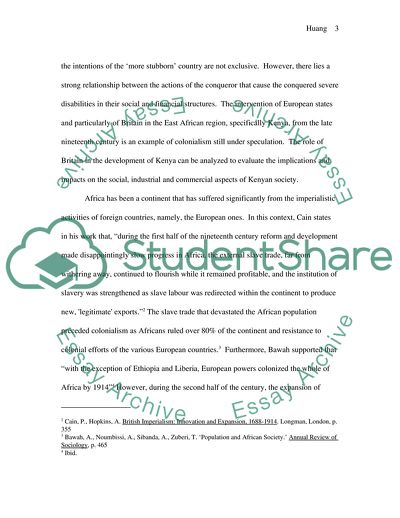Cite this document
(British Imperialism and Colonialism in Kenya Coursework Example | Topics and Well Written Essays - 3000 words, n.d.)
British Imperialism and Colonialism in Kenya Coursework Example | Topics and Well Written Essays - 3000 words. https://studentshare.org/history/1706848-african-history
British Imperialism and Colonialism in Kenya Coursework Example | Topics and Well Written Essays - 3000 words. https://studentshare.org/history/1706848-african-history
(British Imperialism and Colonialism in Kenya Coursework Example | Topics and Well Written Essays - 3000 Words)
British Imperialism and Colonialism in Kenya Coursework Example | Topics and Well Written Essays - 3000 Words. https://studentshare.org/history/1706848-african-history.
British Imperialism and Colonialism in Kenya Coursework Example | Topics and Well Written Essays - 3000 Words. https://studentshare.org/history/1706848-african-history.
“British Imperialism and Colonialism in Kenya Coursework Example | Topics and Well Written Essays - 3000 Words”. https://studentshare.org/history/1706848-african-history.


